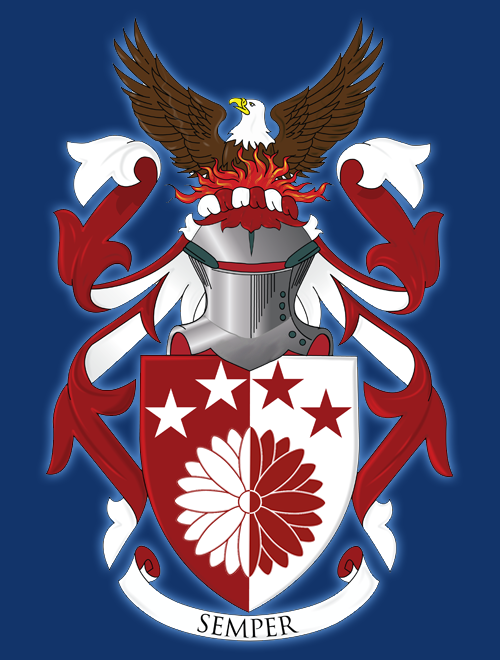It is not in my conservative nature to support a union, yet this morning I found myself enthusiastically checking the “Yes” box on a ballot affirming my desire to be represented by a union.
The simplest answer as to why I checked “Yes” is that my being employed in a bargaining unit position is the only thing keeping me from being converted to a new, horrible personnel system.
The National Security Personnel System is a new “civilian management system” that is in the process of replacing the current Government Service system. NSPS was designed because many of those who manage the DoD felt/feel that the GS system is not flexible enough. This new system was created to reward performance. Unfortunately, this is a bill of goods.
The reality is that NSPS does not reward any employee other than those most recently hired. One of the major complaints about the GS system is that it rewards longevity rather than productivity. While this is a legitimate gripe, NSPS goes a full 180 and practically punishes longevity.
For those who do not have any familiarity with the GS system, let me explain. There are 15 GS levels, each higher level being a higher level of pay. Within each of those levels are 10 steps, each step being a higher step of pay. When you are hired at a level, you progress through steps at certain intervals of time. You earn your first four steps each year. Subsequent steps take more time. But, as you can see, the more time you serve, the more money you make. And, you can put in for jobs at higher levels and earn promotions – more pay – that way.
Under NSPS, there are three pay bands with salary ranges. No levels, steps or otherwise. Under the system, everyone is going to be in pay band two or three. Those hired at level one are basically considered in a training position until they reach their full performance level and will be promoted up to band two. Since there are only three bands, you only get a promotion when you move from one band to another. So, while under the GS system you get a promotion every time you move up a GS level, under NSPS, the most promotions you can ever hope to get are two and most current GS employees will only see one because they’ll be converted to pay band two. The most a promotion from one pay band to another can be, by law, is 20 percent, however, most services do not authorize this full amount. Most employees going from a pay band level two to three only see a 10-percent increase in annual salary. That’s a one-time deal.
Further, under the GS system you have your step increases, but you also have annual cost-of-living raises. Under NSPS you have neither of these. Every year, there is a “pay pool.” You and a certain amount of your fellow employees are in a pool. This pool has a certain amount of money in it. Your performance is rated at the end of the year and your score on your performance rating determines what percentage of the pay pool you will get. You will see this money as either a one-time bonus or in an annual raise. The problem here is that this annual raise, even for above-average performers, has been, on average, less than the annual increases for GS employees. Also, there is no set standard for how the money has to be distributed to employees under NSPS. A bonus counts a lot differently in both taxes and in retirement than does an annual raise.
Where NSPS does offer a clear advantage over the GS system is in the hiring of new employees. When hiring someone who has never worked for the government before, there are no restrictions on how much salary you can offer that person except within the limits of the pay band and the budget for that position. So, let’s say an organization really needs engineers. They have a position available and their budget is from $45,000 - $75,000 a year. They can competitively offer new hires up to that $75,000 a year rate. Now, that means that employee is pretty much locked into that pay rate for the rest of the time he holds that position, but for getting someone into that position, it’s a good carrot.
The downside to the above scenario is when it comes to government employees looking for new jobs. When a current government employee within the either the GS or NSPS system moves into a new NSPS job, and it’s considered to be within the same pay band, it’s not a promotion but more like a lateral transfer. The greatest increase in pay in such a transfer can only be five percent. That’s a pretty sorry excuse for a job system that has prided itself in offering employees the ability to be upwardly mobile and have the ability to move around the world.
But the “not said yet everyone knows why” reason NSPS was introduced was because many felt (and feel) that it is too difficult to discipline and fire employees within the GS system. This is complete and utter crap. The problem is that supervisors didn’t take the time to do the correct amount of counseling and documentation to properly discipline or fire those employees. So they gripe. And they have been presented with a new system that will take up so much more of their time that they’ll have little time to do anything but personnel management. For proponents of NSPS, you got what you deserve.
So, I voted “Yes” to be covered by the union because if I’m part of the bargaining unit, they can’t convert me to NSPS – at least not yet. They’re still working on getting us to convert. I’m not happy about that, and I’m fighting it as best I can, but if the time comes, I’ll take it like everyone else in my predicament has. Swallow the bitter pill because in the end we still have it pretty good.
Subscribe to:
Post Comments (Atom)




No comments:
Post a Comment